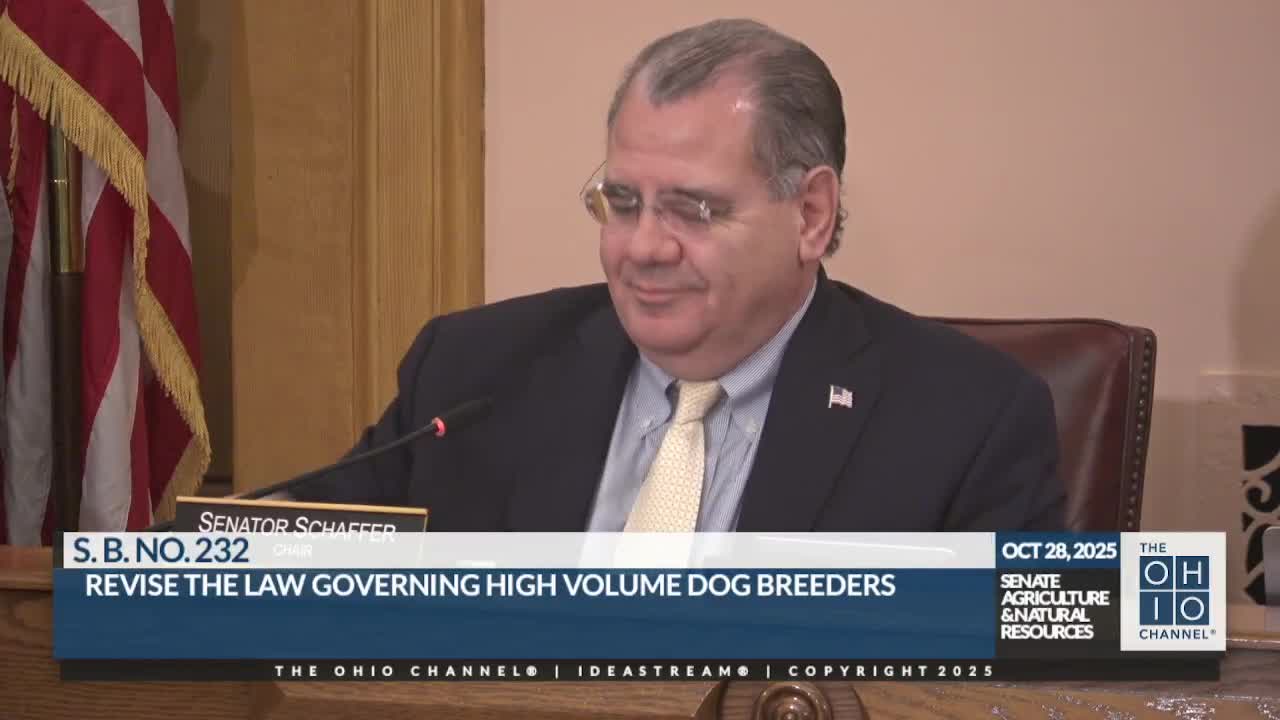Sponsor says Senate Bill 232 will tighten rules for high-volume dog breeders
Get AI-powered insights, summaries, and transcripts
Subscribe
Summary
Sen. Casey Weinstein told the Senate Agriculture and Natural Resources Committee that Senate Bill 232 would redefine high-volume dog breeders, require licensed veterinarians for surgical procedures, and require unannounced inspections to improve animal welfare and reduce burdens on local communities.
Senate Bill 232, sponsored by Sen. Casey Weinstein, received its first hearing in the Senate Agriculture and Natural Resources Committee. Weinstein said the bill would strengthen oversight of high-volume dog breeding operations commonly referred to as puppy mills.
Weinstein said the bill would redefine a high-volume dog breeder as any establishment that keeps, houses and maintains six or more breeding dogs and, in return for a fee or other compensation, sells adult dogs or puppies to brokers, pet stores or the public. The change removes a sales-number threshold that Weinstein said allowed some operations to avoid regulation by remaining just under a sales limit.
Weinstein said the bill also would require that all surgical and euthanasia procedures involving dogs in these facilities be performed by a licensed veterinarian. He cited past cases in Ohio where breeders used unsafe tools such as box cutters or dull scissors for procedures and said that such practices can cause serious injury and long-term suffering.
Another provision Weinstein described would end advance notice of inspections for regulated facilities; instead, inspections would be conducted without prior notice so inspectors see day-to-day operations.
Why it matters: Sponsor testimony frames the bill as an animal-welfare measure and an effort to reduce local-government burdens related to neglected or abandoned animals. Weinstein said the measures would increase accountability for breeders and reduce the downstream costs to humane societies, rescue organizations and local law enforcement.
The hearing consisted of sponsored testimony; the senator offered to take questions but no roll call vote occurred at this session. Weinstein concluded his testimony by thanking the committee and inviting questions.
